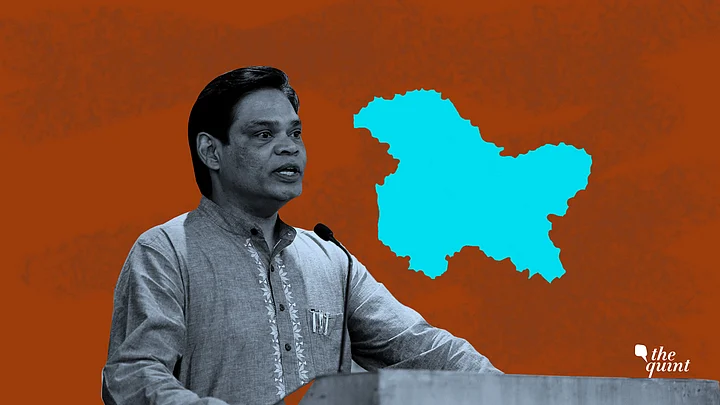Amid heightened tensions in Jammu and Kashmir, senior journalist and author David Devadas, in an interview with The Quint, spoke of the various pressing issues in the state in the run up to the Lok Sabha elections, including the EC’s decision to not hold simultaneous polls, the popularity of Governor's Rule, the anger amongst the Kashmiri youth and the shrinking influence of separatist leaders.
Having chronicled the political, social and cultural history of Kashmir since the 1930s, Devadas pointed out how the situation in the state has only worsened in the last few years due to negligence and lack of a credible policy on the part of the central and state governments.
‘No Rationale Behind Absence of Simultaneous Elections in J&K’
The Election Commission's decision to not hold elections for the Jammu and Kashmir Assembly along with the Lok Sabha polls, in view of the prevailing security scenario, has evoked criticism from political leaders and observers alike.
Devadas has also questioned the move, saying it would have actually been beneficial if both the elections were held together.
“The same amount of security apparatus would have to be deployed (in case of general elections and Assembly polls). And it might as well just be deployed once. And the risks that are taken would also only be taken once.”David Devadas to The Quint
‘Governor's Rule Has Been More Popular in Kashmir’
The state of J&K has remained in political limbo ever since the PDP-BJP coalition fell out in June last year. Subsequently, the state had come under Governor’s Rule and then in December, President’s Rule had been imposed.
Interestingly, Devadas points out that that Governor’s Rule has traditionally enjoyed a substantial amount of popularity in Kashmir, sometimes even surpassing that of an elected government.
“The irony is that Governor’s Rule has always been popular in Kashmir from 1986 on. And even in the 1990s, at the height of militancy. In fact, when an elected government came into being, people were upset and said that it was better under Governor’s Rule. Even this time, there was no demonstration or protest against the imposition of Governor’s Rule. People have generally gone along with it.”David Devadas to The Quint
‘Lots of Anger Among Kashmiri Teenagers’
Objecting to the tendency to see the entire Kashmiri public under one bracket, Devadas says that it is the youth that is especially frustrated with the current state of affairs.
“Even amongst the youth, I have highlighted the difference between those born around 1990 and those born around 2000. The people who are 17 or 18 years old today are the ones protesting on the ground. In fact, someone who is 30 years old is not the one on the ground. The ones who pelt stones or pick up the gun are mostly teenagers or in their early 20s. But the policymakers do not pay heed to this. They look at the Kashmiri public with one overarching perspective,” he asserted.
‘Separatist Leaders Have Lost Their Hold’
Devadas' recently released book The Story of Kashmir chronicles in detail, among other things, the assassinations of Kashmiri separatist leader Abdul Ghani Lone in 2002 and Mirwaiz Maulvi Farooq in 1990.
Today, the families of both these leaders are considered influential in the state's politics. While Abdul Ghani Lone's son, Sajjad Lone, is an MLA from Handwara and the chairperson of the People's Conference, Mirwaiz Maulvi Farooq's son Mirwaiz Umar Farooq is the chairperson of the All Parties Hurriyat Conference.
However, according to Devadas, in the current context, the separatist leadership, including Syed Ali Shah Geelani and Mirwaiz Umar Farooq, have no hold over the people.
“The youth of today don’t understand these leaders and don’t respect them. This is a very problematic dilemma. This is a leaderless generation which is very angry and which is protesting on the ground. It doesn’t understand how to go forward and it doesn’t have faith in any leadership.”David Devadas to The Quint
